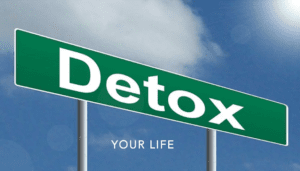While the manifestation of anxiety can be complex, and driven by many different factors (as I’ve chatted about previously here) sometimes the simplest of self care steps can make a big impact.
Whilst it is of course important to work with a qualified practitioner on biochemical drivers specific to you, here are a few things everyone can begin to consider and address at home.

1. Healthy Hydration
When we are dehydrated our body does not function well, in fact it’s considered a threat to survival! This can set off a stress response and increase feelings of irritability, depression, paranoia, racing heart, nausea and anxiety among others. Simply ensuring you are drinking enough filtered water daily can support in moderating stress responses and managing feelings of anxiety.
2. Balancing blood sugar
Similar to dehydration, a drop in blood sugar can trigger a stress response, spiking cortisol and triggering symptoms of irritability, panic, anxiety. Supporting yourself through making meals a priority is a crucial part of this. Eating when you feel the need, not just when it ‘fits’ your schedule, prioritising time to cook and prepare nourishing meals and taking snacks with you if required. This may mean creating time on the weekend to meal prep if your weeks are busy, cooking additional dinner to provide leftovers or getting up a little earlier each day to prepare your food and drinks for the day. These acts of self care daily provide immense support to your body.
3. Sufficient sleep
Poor sleep and anxiety can go hand in hand. It can be a bit of a chicken and egg scenario, in that anxiety can cause insomnia and sleep disturbances and insufficent or poor quality sleep contributes to anxiety. A simple step to improving this is by making sleep important to you and allowing enough time in your day to get adequate sleep. This means allowing enough time in bed to get the sleep you need, above getting those extra jobs done or watching TV. On the subject of screens we have all heard that screens and bright lights later at night can affect our sleep, the light from them blocking melatonin, our sleepy hormone. If you need to be on a screen in the evening try some blue light blocking classes to help minimise your exposure. Making sure you get some time outside in the day light and keeping all internal lights lower in the evenings can also help set your body clock to a better rhythm. If you have a lot of trouble with your sleep it might be a good idea to come in for some individualized help.
4. Connection, rest and stillness
The benefits of a strong sense of community, connection and purpose are very well documented. Isolation is a major driver of stress and anxiety for many, even in our current environment of never switching off digitally! Developing a sense of connection in your community, taking steps to be of service in your life, finding a purpose in your job or family role and making time for friends, family, laughter and joy are amazing ways we can begin to arrest anxiety. Breath work, allowing space for rest and stillness and checking in on how you are feeling are also super important. The Gentle breath meditation can be helpful in reconnecting you to the present moment and how your body is feeling, taking you out of your head and your worries.
5. Check your caffeine intake
Cutting caffeine can be one of the most crucial steps to regaining a sense of calm and balance in the face of anxiety. While we know caffeine can improve alertness and concentration (and love to attach to the studies showing its benefits), it’s a double edged sword. Caffeine increases cortisol levels, promoting the release of cortisol and triggers a stress response (via your flight or fight mechanism). This can be bad news for someone with anxiety and can increase jitteryness, increased heart rate, anxiousness, blood pressure and insomnia (which further worsens anxiety).
If you experience feelings of anxiety it may be worth reviewing your caffeine intake (think coffee, tea, green tea, cocoa, cola soft drinks and energy drinks). Why not try swapping your caffeinated drink for a calming herbal tea, (think chamomile, lemon balm and lavender teas or blends of these gorgeous nervine herbs) for an even greater therapeutic effect.
Share the love

About Sandi
Sandi Cooper is an experienced Naturopath working in clinical practice for almost two decades. Her clients love her down-to-earth approach and her naturally caring qualities. Although Sandi is experienced in most areas of clinical practice, she has a special interest in children’s health and nutrition, working with parents to get the best outcomes for their children.






